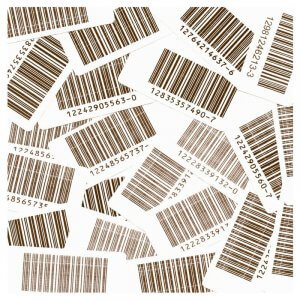It has come to our attention that Amazon UPC requirements have changed, and that sellers who don’t comply with the new guidelines risk having their selling privileges suspended.
If you’d like to know how this affects your listings, read our short guide below.
Newsflash: Amazon has started checking the GS1 database to see if there’s a match between its records and the GTINs (Global Trade Identification Numbers) listed by sellers. We’re expecting the news to cause some confusion among Amazon sellers, so we’ve put together the Q&A section on Amazon UPC requirements below, as well as some advice for every Amazon retailing scenario we can foresee.
What are GTINs?
GTINs are the identification numbers issued by GS1, the only authorized U.S. provider, specifically for products and services. Examples of GTINs are the UPCs, EANs, JANs and ISBNs used by sellers listing on Amazon.
So, why does this matter to me?
Not only is Amazon now checking that UPC codes are authentic, but also that they match the type of product and the brand owner. Amazon will remove any designated brand listing with an invalid UPC, and it may decide to suspend your selling privileges if you don’t comply.
Why do they need to match?
…Because the identification numbers licensed by GS1 uniquely identify a company as a brand owner, and Amazon wants to get rid of products that are not genuine. Amazon also hopes to minimize duplicate listings, make product reviews more accessible and reliable, and avoid confusing its customers.
What You Need to Do to Comply
Amazon is now checking the title, brand and manufacturer fields for every listing, comparing them to the corresponding parts in the UPCs listed by sellers. But new listings will also need to match Amazon’s Designated Brands Requiring UPCs list from now on, and the comparison will be carried out automatically.
Here’s what you need to know:
1. If you’re the brand owner, buy GTINs from GS1 (Global Standards 1). To begin with, you’ll need a company prefix. The first three numbers in this prefix identify the country where the company is based, so not necessarily where the goods are manufactured, i.e. their country of origin.
The rest of the numbers in the code will indicate the type of product, the size, the color, etc. These identification numbers are then converted into barcodes, to make them machine-readable. To find out what type of EAN/UPC barcode you need, read the GS1 barcode classification. To see what’s involved in licensing a GS1 company prefix and getting a GS1 barcode, check out this official demo.
2. If you’re the brand owner, but you’ve bought your GTINs elsewhere, then use this official online search tool to check that the code is valid. If it’s not, you should get in touch with the brand owner. If you don’t know who the brand owner is, you should delist your products immediately.
3. If you’re not the brand owner, then you’re allowed to sell on Amazon as an authorized reseller, as long as you always use the original UPC, as seen on the labels and the invoices you receive from your supplier. Be aware that they may not necessarily be genuine, even if they show up in official documents. It’s your responsibility to check that the codes are valid before you list them.
4. If you’re selling private label items, Amazon may be able to grant you an exemption from using GS1 barcodes for certain product categories. However, you’ll need to apply for Brand Registry (requires login), so that Amazon can give you a GCID (Global Catalog Identifier). If you’d like Amazon to give you a complete exemption for products that are branded, media, non-branded, bundles or parts, click here to apply (requires login).
Note: A brand’s name may be different from the name of the owner or the manufacturer, so Amazon may perceive a genuine barcode not to be valid. Also, companies ‘trading as’ or ‘doing business as’ something else comply with Amazon’s policy, even if their barcodes don’t match their trade details, but sellers still need to provide evidence that they are who they say they are. The UPC certificate and the DBA registration certificate are sufficient proof.
Melanie takes an active interest in all things Amazon. She keeps an eye on the latest developments, and keeps Amazon sellers up to speed






